We kindly inform you that, as long as the subject affiliation of our 300.000+ articles is in progress, you might get unsufficient or no results on your third level or second level search. In this case, please broaden your search criteria.
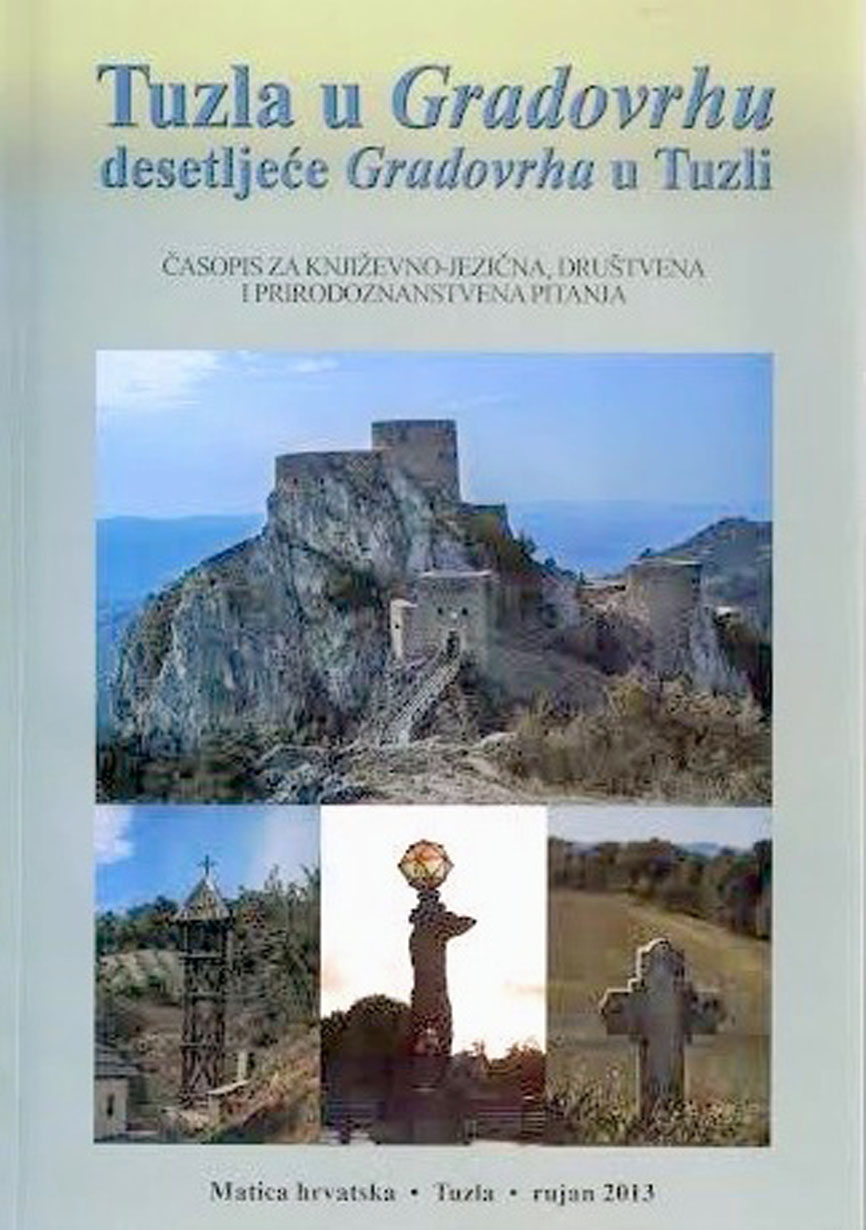
Efforts to come through political action groups to mutual convergence and complexity of the structures that make up Bosnia and Herzegovina did not provide results in a twenty-year quest. Establishing a culture of dialoque and convergence in the Bosnian reality obviously requires new and different ways and ways of achieeving a goal which will achieve the desired level of (dis)agreement constituents (individuals and groups) of this reality. Leaving aside the need for honesty and an organic carrier existence process of mutual convergence of political basis to resolve the contradictions manifesting and when it is unable to ascertain the progress in the efforts to arrive at satisfactory solutions, emphasizes the need for policy convergence culture modifies the specified process. In this regard it should be noted the two spheres, knowledge and economic converfgences as a possible key to more positive solutions than those offered by the political sphere. It is therefore necessary knowledge, new products, visions and initiate the process of economic convergence of mutual agreement of individuals and groups in Bosnia and Herzegovina to the desired level of achievement possible. A new model of convergence culture is based on the routes through the knowledge and the economic approach is based on the philosophy of reflection, which is basically an intention to present a true positive resolution of contradictions and to block. The process that occurs on knowledge is something quite different from that which occurs in the political calculations, and stores of various colors. The basic model of cultural convergence in the BiH society is necessary based on the philosophy of existence of real opportunities to achieve predicted performance of the process.
More...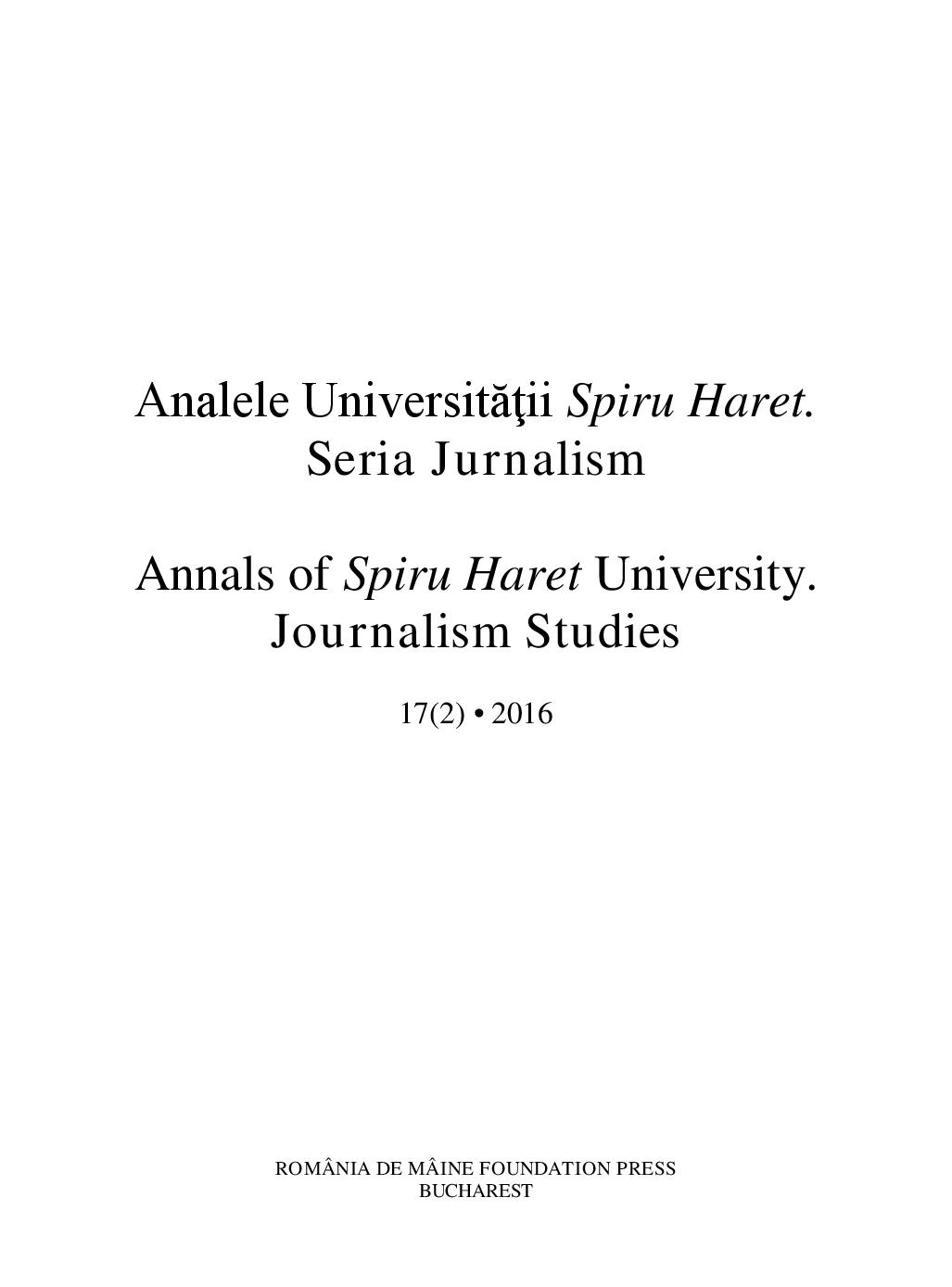
The paper argues that within a Kantian framework national law requires a foundation in cosmopolitan right. The foundational character of cosmopolitan right is most explicitly expressed in The Metaphysical Elements of Justice where Kant argues that public right necessarily includes three forms: political right, international right and cosmopolitan right which form a system of interdependent parts. Cosmopolitan right also appears in Perpetual Peace as one of the three definitive articles of a constitutional pacific league of states. In this context cosmopolitan right is enshrined in each domestic constitution requiring every state to treat every individual (including non nationals) as if they were citizens of the world. In this manner it becomes possible for all persons to have basic rights without the tangible existence of a world state. Furthermore, I argue that cosmopolitan right requires democratic institutions at the global level in order to universally secure republican values within each state. Thus, I conclude that a Kantian or rightful state is secured only within a cosmopolitan juridical order.
More...
The purpose of this article is to gain a deeper understanding of the inherent topological features of brain networks in Internet gaming disorder (IGD), psychological attributes and comorbidities that are related to the advancement and maintenance of IGD, and the behavioral and neural grounds of risk-taking and decision-making in IGD. We are specifically interested in how previous research investigated neurobiological elements associated with IGD, behavioral control difficulties that persons with IGD frequently display, and the impacts of interventions on neural activity in IGD.
More...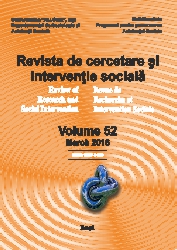
Participatory evaluation is a process in which evaluation experts and members of a community who are not experts in evaluation evaluate community actions or projects jointly and on the same level. Participatory evaluation is a community development strategy. In this paper, we analyse the relationship between participatory evaluation and community development processes via three case studies in which participatory evaluation processes are instigated within community development plans. The results show that participatory evaluation is a useful working methodology not only for evaluating community development processes in a participatory way but also in generating learning that can contribute to empowering the people and communities involved in it.
More...
The author substantiated that the transformation of spiritual production forms being a consequence of contradictions of the social and economic system are especially actively reproduced in terms of globalization and cause problems for the formation of knowledge economy. The article highlights that the contradictions are formed under an impact of endogenous and exogenous factors.
More...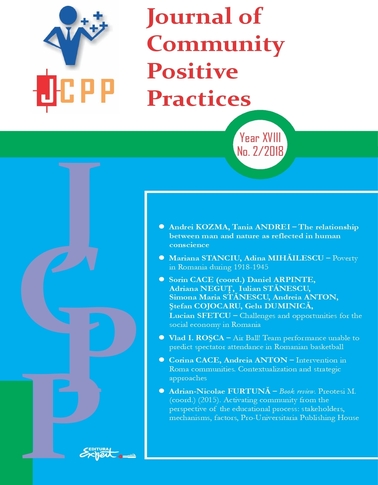
Man's removal from the natural environment and his anthropocentric positioning in the anthropic environment are the result of a long cultural development. The path from man as part of nature to man as the master of nature goes through changing patterns of thought and action. Founding/cosmogonic myths have supported, in the consciousness of humanity, the feeling of belonging to nature as a place of genesis and the becoming of man. When man was no longer identified with nature and extracted from its systemic functioning, he became a user of the resources generously offered by nature. Thus, the development of human habitats was done with the decline of the natural environment and at the expense of the alienation of man from nature. The nature that gives us everything and does not request anything in return now appears as a lost paradise that we are looking for inside us. The operation of the natural environment on Earth is a model of systemic organization in which the intelligence of matter is an everyday observable reality. Living according to natural rules is a profoundly religious experience of meeting with eternity, finding the lost paradise. That is why the return to nature in the sense of observing and reproducing a model of action and organization, validated by the very functionality of the planet, may be the solution to the salvation of human society from self-destruction. In the first part of the article, the authors deal with patterns of thought and action in the relationship between man and nature in archaic societies versus contemporary society, continuing with aspects of human intervention in the functioning of natural systems. At the end of the article, the authors emphasize the need of a shift in paradigm in the approach to nature. In conclusion, modern man's attempt to dominate and control nature has only disturbed and distorted the natural environment on Earth. All the aggressive changes induced on nature produce natural hazards that can no longer be managed and controlled, turning into threats to human society. In this context, the paradigm shift means respect for nature, understanding its functioning mechanisms, and developing a preventative behavior to preserve the natural balance of the environment.
More...
The study presents the social status of the population in Romania, highlighting the dimensions of poverty between 1918 and 1945 in the European context. Data and information for the survey were taken from a series of publications of statistical institutions of the time, as well as from the works of interbelic and contemporary economists and sociologists. Dominant rural dimensions of poverty are discussed in relation to the effects of agrarian reforms of the time. A series of indicators of urbanization and modernization of Romanian society are also presented. The study contains a brief analysis of the manifestation of poverty during the Second World War (1941-1945), including the effect of successive occupation of the country by the German and by the Soviet army.
More...
The first part of the paper covers social economy issues from the perspective of the relationship with the market and the State. The second part looks at the international framework, by highlighting the main regulatory framework and the national models of social economy at international level. The third part analyses the institutional and legislative national (Romanian) framework based on the analysis of the social economy entities. In conclusions we analysed public policy options for development of social economy in Romania
More...
The purpose of this paper is to investigate how sports team performance influences attendance numbers. Knowing this can be important for sports managers in planning their club marketing strategies. The research observes attendance figures and team performance data from the Romanian Men’s Basketball League (LNBM) over five years (2012-2017). The results of the bivariate regression analysis indicate that although the Null Hypothesis can be invalidated and a certain connection between the variables can be accepted, the relationship is only weak and of low significance (R=0.45; R2=0.20). Attendance numbers cannot be predicted based on team performance, mainly because performance can variate strongly over longer periods of time, or even from one game to another. Instead, the study suggests that sports managers should (also) look at other market variables (ticket prices, scheduleing, transportation and opportunity costs, advertising campaigns etc.) in their attempt to create strategies able to bring more fans to the arena.
More...
This article analyzes the context of development from the 4 southern regions of development in Romania: South-East, South-Muntenia, South-West Oltenia and Bucharest-Ilfov. The study highlights regional specificities in terms of employment, education and the situation of the Roma population. The data are of secondary type and come from administrative and statistical sources. The role of contextualization is to outline the modalities of intervention through applied projects that contribute to increasing access to the labour market for the Roma population. Although the regions are similar, certain differences occur, which determine the appropriate interventions in the regional or local contexts. An integrated approach that considers many components of social life is best suited to responding to multiple growing needs
More...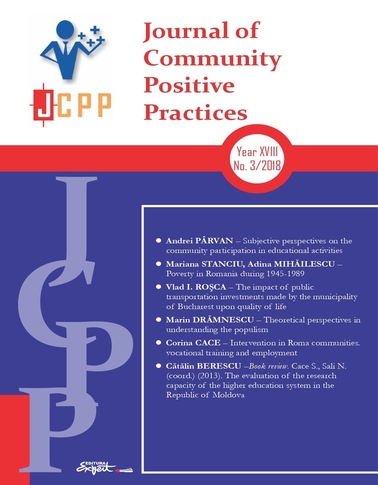
The effective action research requests and involves innovative and sturdy strategies to discover and to understand social life. Visual methodologies (as Photovoice) can provide the novelty and the engagement to support the effectiveness of the research, to support the interpretative phenomenological analysis and to enable it for deeper understanding and a foundation for appropriate interventions also. As a participatory method, Photovoice is considered an innovative approach and its use in Republic of Moldova is unique, as it is the context: a community development and educational reform project happened in rural communities with various socio-economic profiles, with different degrees and on different levels of marginality, vulnerability, social and economic under-development. We have chosen individuals from four of the communities involved to find out how they see their role and the collective participation to support education. As the projects which is related to, the study gives insights on the functions of education and about how the things can be done. In all cases, for all the communities, the education (and the school also) seems to value the bond with the community, with its past (in terms of elders, customs and the habitat: nature, wildlife etc.), with the local identity. The emergence of community mechanisms to rediscover local identity creates the premises for a more consistent support from the community in future community development efforts or educational reforms.
More...
Starting from evidence suggesting declining population figures in Bucharest, the research asks for the reasons why the Municipality should continue its investments in public transportation, given the negative demographics and natural growth. Research results indicate a strong and linear positive relationship between investments and number of journeys with public transport services. Building on this finding, the paper discusses that public administration investments in transportation eventually lead to improvements of the quality of life, by reducing the negative externalities of private vehicle use.
More...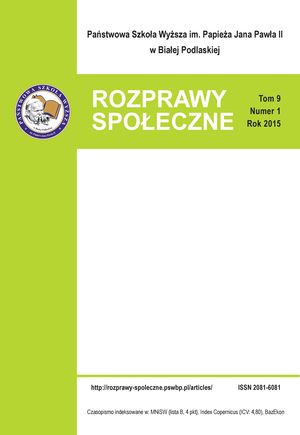
The starting point of the designed analysis was the conviction and an assumption stemming from it that commonsense knowledge of the tested youth concerning self-perception and identifying the issues related to the idea of what kind of persons they wish to become is of functional nature, undoubtedly related to the surface on which a young person’s bases the process of building his or her own identity. The basis of the presented research process was a free written answer of information-reflection nature. The research participants developed the topic and explained it by presenting their own views. The intention was to reveal the way in which a young person perceives his or her own future and thus, to show the perspectives of one of the aspects of their identity.
More...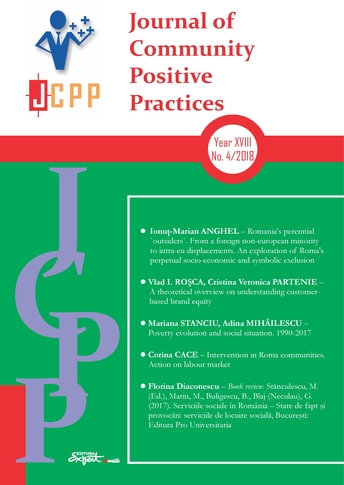
This research takes the form of an essay with two-folded goals: to bring further clarifications on the concept of brand equity, as it was discussed in the branding literature, while at the same time presenting the frameworks that could help both practitioners and researchers to measure the power of a brand. For this purpose, the authors have reviewed the existing literature, and discussed the most important perspectives on the topic: the financial-based and consumer-based brand equity, while at the same time debating the limitations of each one. The findings have implications for future research into a holistic approach to brand equity, that should see an increase of the customer’s perceived brand equity.
More...
The study shows the evolution of poverty in Romania in 1990-2017, within the European context, analysing statistics and local and international information. After the brief presentation of the basic concepts used to analyse the phenomenon, the two main stages of its dynamics in Romania are presented: 1990-2000 – when the scale of poverty increased continuously, and 2000-2017 – when the phenomenon gradually decreased, and became less intense, at least in terms of the severe and absolute poverty. Such performance is noteworthy, knowing that over the past century, much of the Romanian population could not afford a consumption of goods and services above the limits of the subsistence basket.
More...
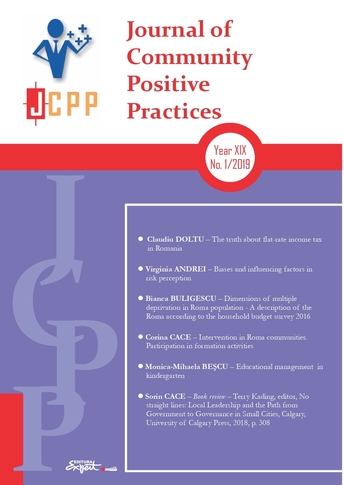
The aims of this paper are to analyze the causes and implications of risk perceptions and to review the theories developed nowadays. One of the main concepts outlined in risk psychology literature is cognitive biases, which refers to cognitive shortcuts used subconsciously by every individual in order to understand a hazardous situation and act upon it. The qualitative research for this study has identified various ways to process risks and various associations made by respondents when talking about the risks perceived in their lives. Some of the answers have been gathered in this paper, which tries to identify connections with well-known biases in risk psychology. Research findings will help in the elaboration of the author’s PhD thesis.
More...
The article addresses the issues of educational management in kindergarten and of educational leadership. These two concepts are very important and a lot of researchers are interested to find more information about. We are interested to discover the importance of the activity of a manager in a kindergarten and how this activity influences the quality of education provided there. In the education system in Romania, we have kindergartens that have legal personality and kindergartens that are structures of another kindergarten or another school. Also, there are kindergartens from rural or urban areas. In this article, we propose an approach to the issue of educational management in order to be able to find out to what extent a kindergarten management can influence the work of teachers and all staff in the education unit to achieve quality education.
More...